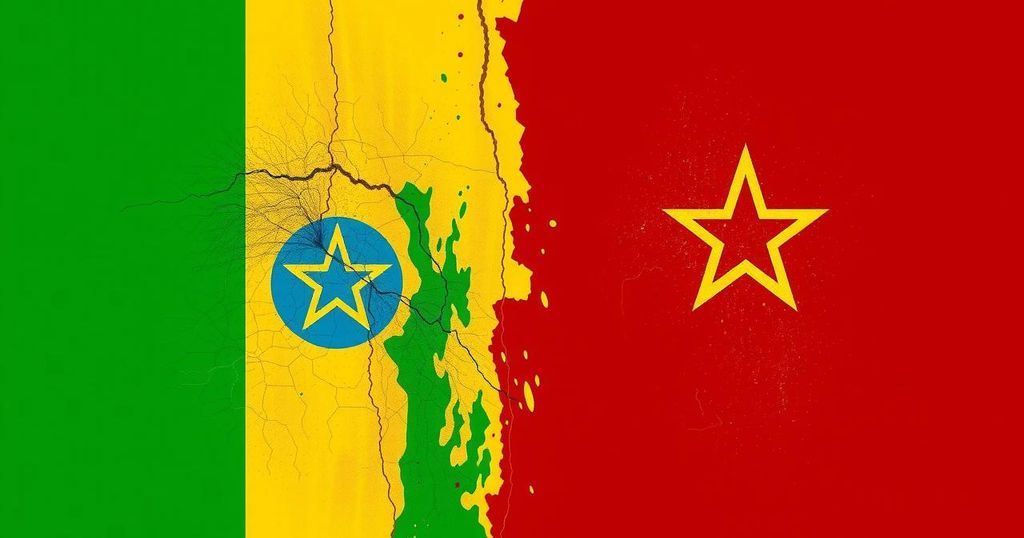Turkey’s Diplomatic Endeavors: Mediating the Tensions Between Somalia and Ethiopia
Turkey is mediating tensions between Somalia and Ethiopia following a controversial MoU between Somaliland and Ethiopia. While Turkey’s diplomatic history lends credibility to the mediation, challenges persist due to entrenched positions and complex regional dynamics. The outcome remains significant for stability in the Horn of Africa amid ongoing conflicts and evolving geopolitical interests.
Turkey is actively engaging in shuttle diplomacy to mediate the rising tensions between Somalia and Ethiopia, primarily influenced by the Memorandum of Understanding (MoU) signed between the autonomous region of Somaliland and Ethiopia in January 2024. Turkey’s extensive diplomatic relationships with both nations position it as a credible mediator in resolving their disputes, particularly amidst its significant investments in Somalia’s state-building efforts and military support against militant threats, particularly from al-Shabaab. Furthermore, Turkey’s military assistance to Ethiopia under Prime Minister Abiy Ahmed has been instrumental in addressing the Tigray regional conflict, emphasizing Turkey’s role in regional stability. During the second round of mediation talks, Turkish Foreign Minister Hakan Fidan articulated Turkey’s objectives, stating, “As Türkiye, our goal is to address the existing concerns and resolve the issues in a way that will benefit not only Somalia and Ethiopia but the entire region.” However, the complexity of resolving the escalating sea dispute is evident, as both countries remain fixed in their positions regarding national security and territorial integrity. As noted by scholar Tunç Demirtaş, the geopolitical landscape in the Horn of Africa is rapidly evolving, presenting further challenges to the ongoing negotiations. The Horn of Africa is beset by instability and conflict, making the Ankara process crucial for peace. Nonetheless, recent conflicts in Somalia and Ethiopia, compounded by the contentious MoU involving Somaliland, complicate Turkey’s mediation efforts. Under Abiy Ahmed’s leadership since 2018, initially buoyed by high expectations, Ethiopia has faced significant internal dissent and ethnic strife, particularly illustrated by the violence in Tigray and Amhara regions. Some observers express skepticism toward Ahmed’s regional ambitions, arguing that his rhetoric and actions may incite further turmoil in relations with neighboring countries such as Somalia, Eritrea, and Egypt. The MoU between Hargeisa and Addis Ababa ignites tensions by undermining Somalia’s sovereignty, as Ethiopia seeks to expand its maritime access. This pursuit, which may include acquiring a naval facility in the strategic Bab-el-Mandeb zone, poses an existential threat to Somalia and its ongoing nation-building initiatives. Somalia’s response has been perceived as inadequate concerning the infringement on its sovereignty. The MoU represents a critical moment, where diplomatic boundaries have been crossed, and Ethiopia has shown no signs of reversal. To disentangle this intricate dispute, Turkey must navigate between the competing interests of both nations. Ethiopia’s quest for unfettered access to the sea must be tempered to respect Somalia’s sovereignty, while Somalia’s government must prepare for potential conflict if necessary. A military confrontation would destabilize the region, likely involving Eritrea and Egypt, alongside engendering new liberation movements within the Somali region of Ethiopia. As per the United Nations state mediation framework, any mediation endeavor should be rooted in international law and established ethics. Turkey’s efforts may find hurdles in reconciling Ethiopia’s aspirations for naval military bases with Somalia’s firm stance against such maneuvers, reflecting Ethiopia’s complex historical ambitions that could rekindle long-standing tensions. Ultimately, Turkey seeks to foster a resolution to the Somalia-Ethiopia conflict, but significant geopolitical and legal challenges remain prevalent in the unfolding Ankara process.
The article discusses Turkey’s ongoing mediation effort between Somalia and Ethiopia against the backdrop of a recently signed MoU between Somaliland and Ethiopia, straining relations between Somalia and Ethiopia. Turkey’s historical ties to both nations enable it to act as a mediator, although recent conflicts pose challenges to diplomatic efforts. The commentary highlights the fragile nature of political stability in the Horn of Africa, driven by complex ethnic dynamics and Ethiopia’s ambitions in the region. The piece further suggests that the Ankara process has potential but faces hurdles given the entrenched positions held by both competing governments.
In conclusion, Turkey’s mediation strategy, while presented as a crucial maneuver to reconcile the disputes between Somalia and Ethiopia, encounters significant challenges rooted in historical tensions and national interests. As the Ankara process unfolds, maintaining diplomatic balance while addressing the needs and concerns of both nations will be imperative for regional stability. The complexity of ethnic politics and the geopolitical landscape underscores the need for ongoing dialogue and compromise.
Original Source: www.dailysabah.com




Post Comment